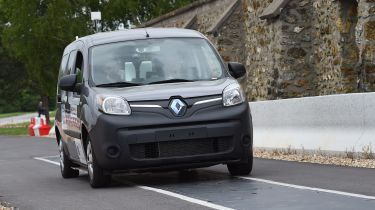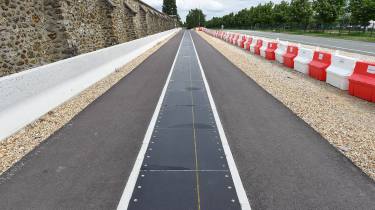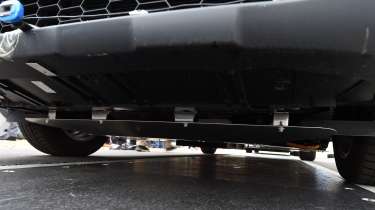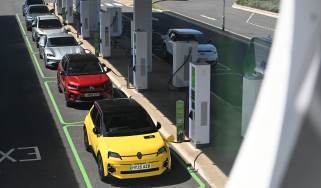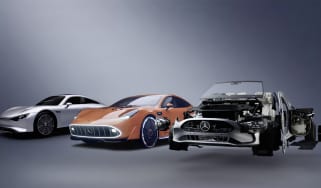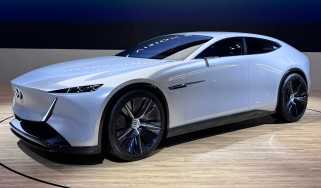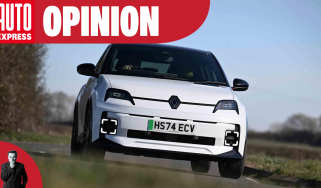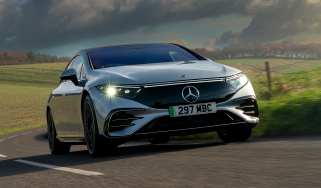Wireless electric car charging: is EV charging without cables the future?
As the technology inches closer to commercial reality, we examine the state of wireless charging for electric cars
While charging electric cars without cables seems like science fiction, a number of companies believe it is the future. Known as inductive charging, this wireless EV charging technology uses electromagnetic induction to charge batteries instead of conventional cabled solutions.
There are two main types of wireless electric car charging either on the market or in development. The first, static wireless charging, functions much like a wireless charging pad for a smartphone and works when a compatible electric car is parked on top. The second, dynamic wireless charging, is far more ambitious and is intended to charge electric cars as they drive along the road – no small engineering feat.
Given the huge positive impact such systems could have on the electric car market, it’s no surprise that many companies have taken the plunge to try to bring wireless electric car charging to the masses.
Unfortunately, it’s not an easy technology to get to grips with and deploy at scale: even static charging stations are very expensive to install, the current stock of electric cars isn’t built to accept the technology (mostly), and – as with even the most advanced mobile phone – wireless charging speeds are much slower than with a cable.
When will wireless charging for electric cars arrive?
Many companies have already invested in wireless charging including BMW, Hyundai, Tesla and Geely. BMW Introduced a pilot scheme in 2018 that saw participating owners of a specifically configured 530e plug-in hybrid test a home wireless charging pad. Peak charging power was 3.2kW – enough to charge the car’s small battery in around three and a half hours. The German firm’s efforts seem to have stalled since then but we’d be surprised if more powerful versions weren’t in the works to accompany its continued EV push.
In Nottingham, Wireless Charging of Electric Taxis (WiCET) is a project funded by the Office for Zero Emissions Vehicles to “assess the commercial and technical viability of deploying wireless charging for electric Hackney Carriages”. A number of LEVC TX taxis have been specially prepared to charge via dedicated wireless charging stations developed by Sprint Power, with the ultimate aim of making the system production ready in due course.
The WiCET scheme’s funding came as part of a £40m government investment package, itself part of the wider Road to Zero strategy first published in 2018. £20 million was dedicated to funding projects that investigate charging solutions for residential streets where electric vehicle (EV) owners have no off-street parking, while a further £20 million was earmarked for static and semi-dynamic wireless charging solutions for commercial vehicles.
Fast forward to today and it seems that static wireless charging for electric cars is getting closer to reality but still isn’t a widespread commercially available option. According to Bloomberg, the technology is still too expensive to be viable for now – but trials in China, South Korea and the US are making headway.
Bloomberg also reports that Tesla is developing its own static wireless charging technology for electric cars, with other manufacturers taking notice as a result, and that standardisation of the technology – up to 11kW – was finalised in 2022.
These positive steps could help the technology enter the mainstream, but don’t expect a widespread charging revolution anytime soon.
What about dynamic wireless charging for electric cars?
Dynamic wireless charging – where an electric vehicle can be charged wirelessly as it moves – has been in development for decades. A working prototype was first built at the University of California in the late 1980s and many other institutions and companies have had a go since. It was also considered as part of the Road to Zero plan mentioned above.
However, even many years later in 2024, dynamic wireless charging still hasn’t made it out of the prototyping, trial or demonstration stages. It seems the largest barrier to a full-scale rollout is cost: according to an article published by Nguyen et al in the journal Scientific Reports, one kilometre of charging road will typically cost more than a traditional charging station.
The same report suggests that dynamic electric charging “present[s] a distinct advantage” over conventional charging networks for electric car drivers, minimising detours to – and time spent at – traditional static chargers. The report concludes that the technology is a great idea with “potential superiority over traditional charging stations in terms of operational efficiency and end-user satisfaction” – but that cost is a major limiting factor.
The report outlines some suggested areas for developing the technology into a viable product, including the need for economic analysis, optimisation of ‘critical components’ to lower costs, and the need for “a consensus among EV manufacturers and dynamic charging facility providers to ensure the same charging standard across different brands” – just as standardised plug types are currently in place.
It’s unfortunate that there are so many hurdles in the way of the technology’s successful rollout. We witnessed dynamic wireless charging in action at technology firm Qualcomm’s test site in France in 2017, during which a small fleet of electric Renault Kangoos were charged at 20kW while driving at 60mph along a 100m stretch of wireless charging road.
The system, Qualcomm assured us, would be unaffected by the weather and multiple cars could use the system while all receiving the same charge. It was an impressive demonstration six years ago – so we can only imagine the potential of an up-to-date system today.
Not too keen on waiting for a full charge? These are the longest range electric cars on sale...
Your electric car questions answered
- Should i buy an electric car?
- What’s the best way to buy an electric car?
- Is a hybrid, plug-in hybrid or electric car right for me?
- Should i buy a used electric car?
- Can i get a plug-in car grant?
- How is electric car range calculated?
- How much do electric cars cost to charge?
- How much do electric cars cost to run?
- How long do electric car batteries last?
- What happens to old electric car batteries?
- Should i get a heat pump on my electric car?
- What are fast charging and rapid charging?
- Should i get a home electric car charger?
- Can i tow with an electric car?
- Is wireless electric car charging the future?
- What’s the history of the electric car?
- What’s the future of the electric car?
Find a car with the experts

